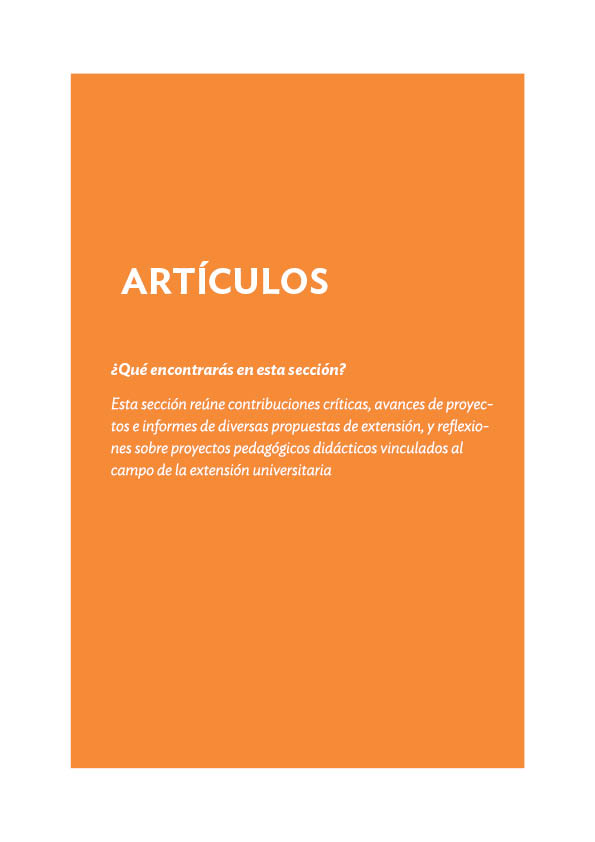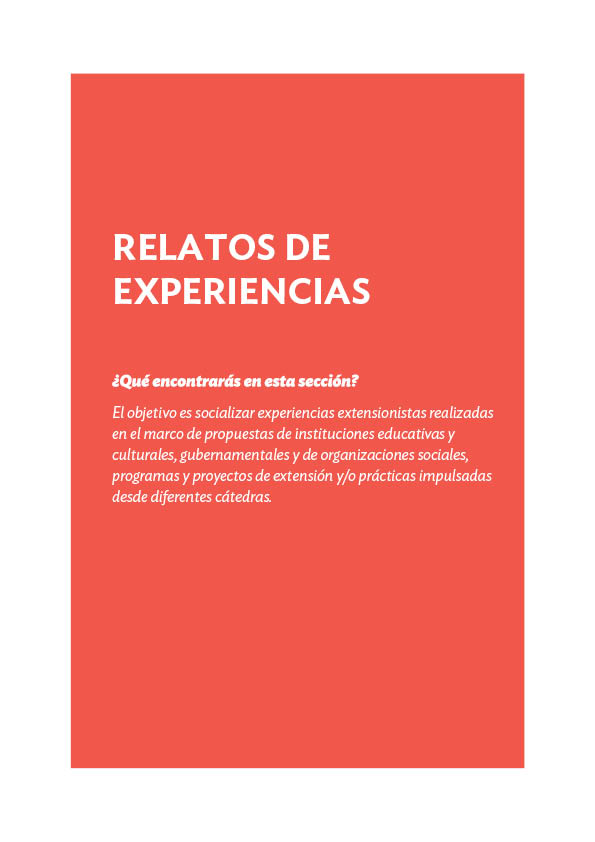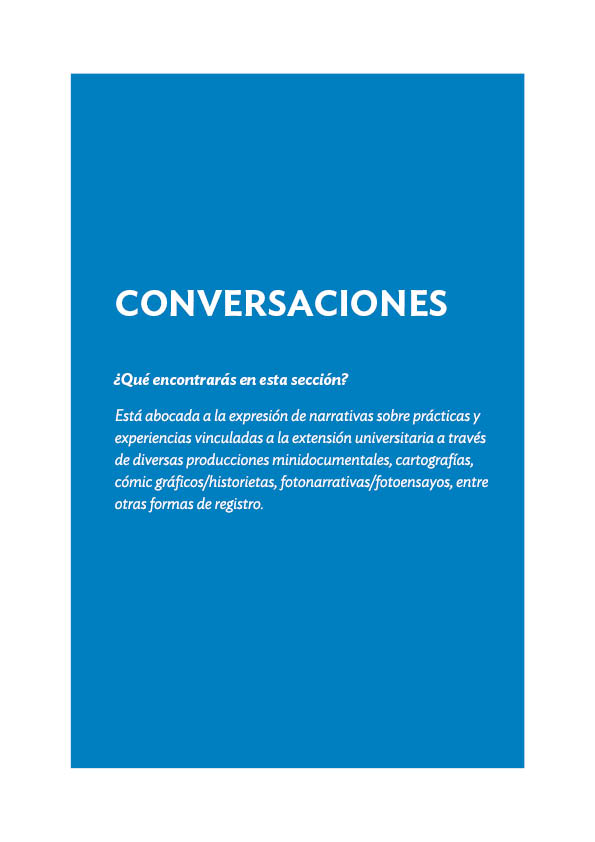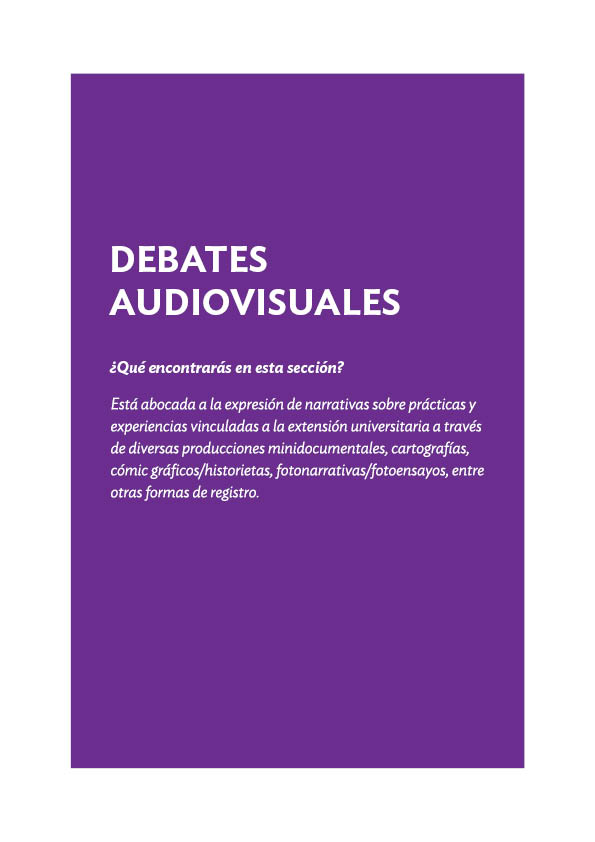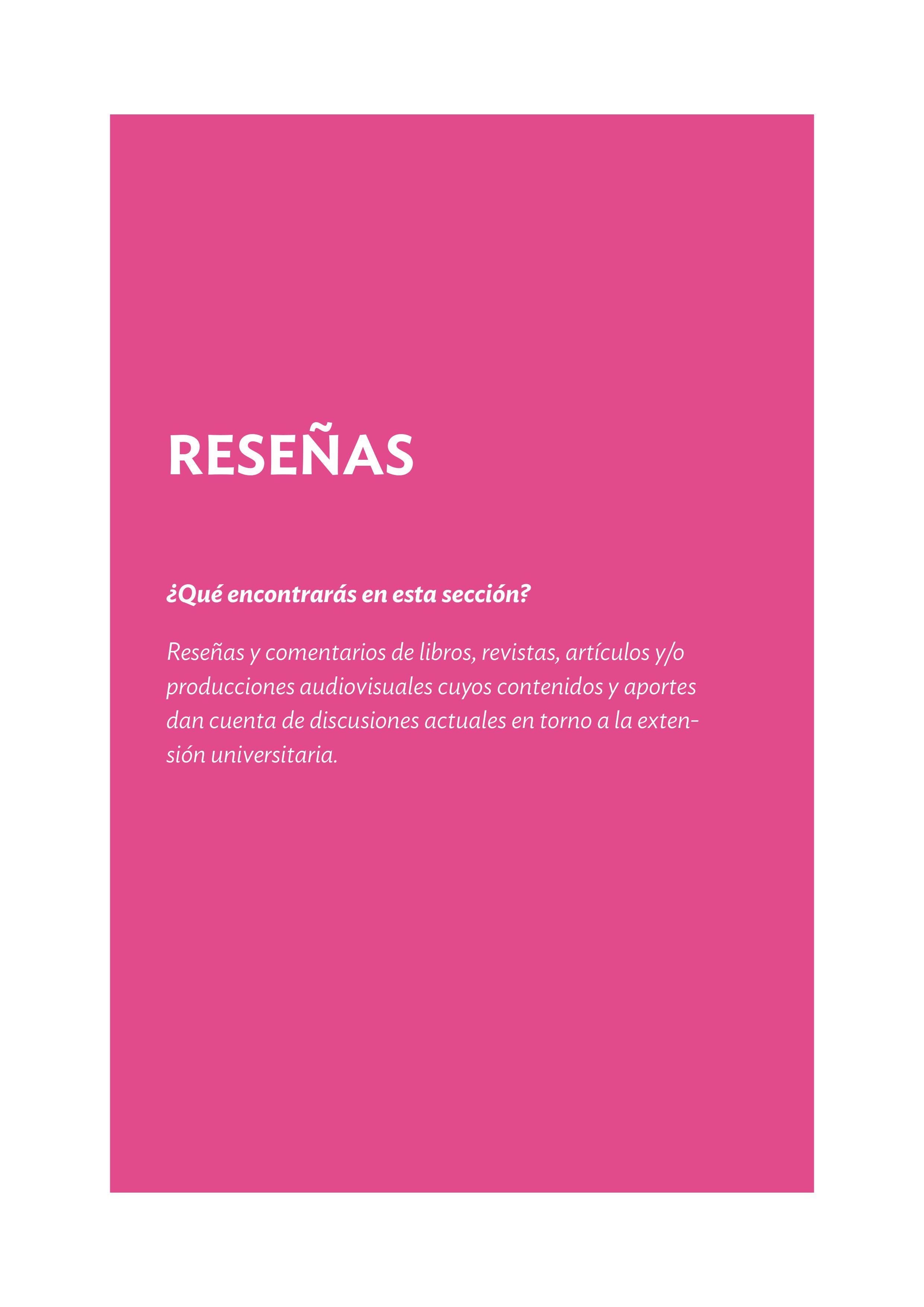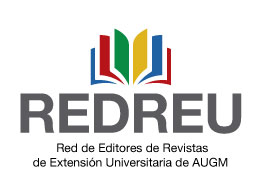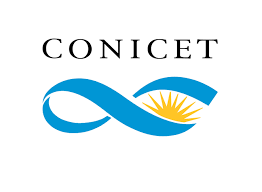Vol. 10 No. 15 (2023): Human rights and outreach
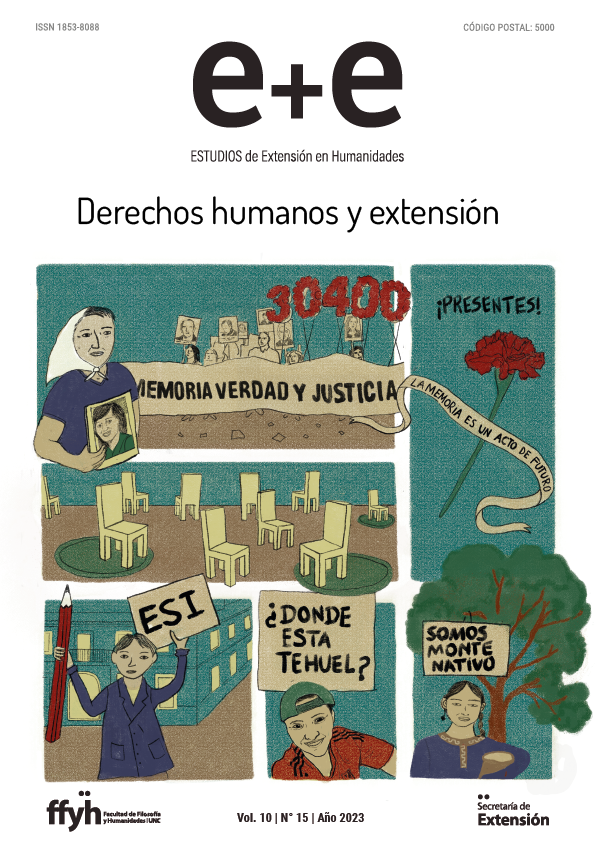
The main objective of this dossier is to weave together different experiences of university extension from human rights perspectives.
The recent history of our country and the history of the human rights movement with its trajectories of struggles, achievements and disputes, shows that rights are not conquered once and forever, that there is no univocal way of naming, categorizing and establishing what is named when we talk about human rights if we do not take into account the genesis and transformation of this idea in a given time and social space. Human rights -as we understand them- are conditioned by the societies in which processes of recognition and violation of rights are developed, as well as spaces of resistance and remnants of humanity in the face of cruelty.
From our point of view, it is not enough for individuals to identify that they have rights, or for certain States to recognize their existence, but rather, human rights constitute life projects and subjectivities that do not develop in solitude and are only possible through collective constructions. Hence, human rights have much to do with the politicization of life in common, through the construction of a life with others. That is to say, with subjects with the capacity for agency who delineate the contours of what it means to speak of human rights and what this expression contains or harbors. This process includes both consensus and disputes, advances and expansions, but also regressions.
In this sense, the struggles for the defense and expansion of rights are closely linked to university commitment, from the political position in which critical extension approaches its university work. In principle, because of the existence and the commitment of extension work from human rights approaches. But also because both paradigms are not possible without the constant interlocution with others, with diverse collectives that nurture, stress and discuss the meanings of extension and human rights. Let us consider, for example, how it would be possible for the field of reflection and academic work to make the notion of human rights more complex if it does not take into account the dialogue and links with those who struggle daily in the arena of the (im)possible. In turn, both extension and human rights work must prioritize times and spatialities that go beyond the demands of evaluation systems, that is to say, that ultimately liquefy individual demands.
